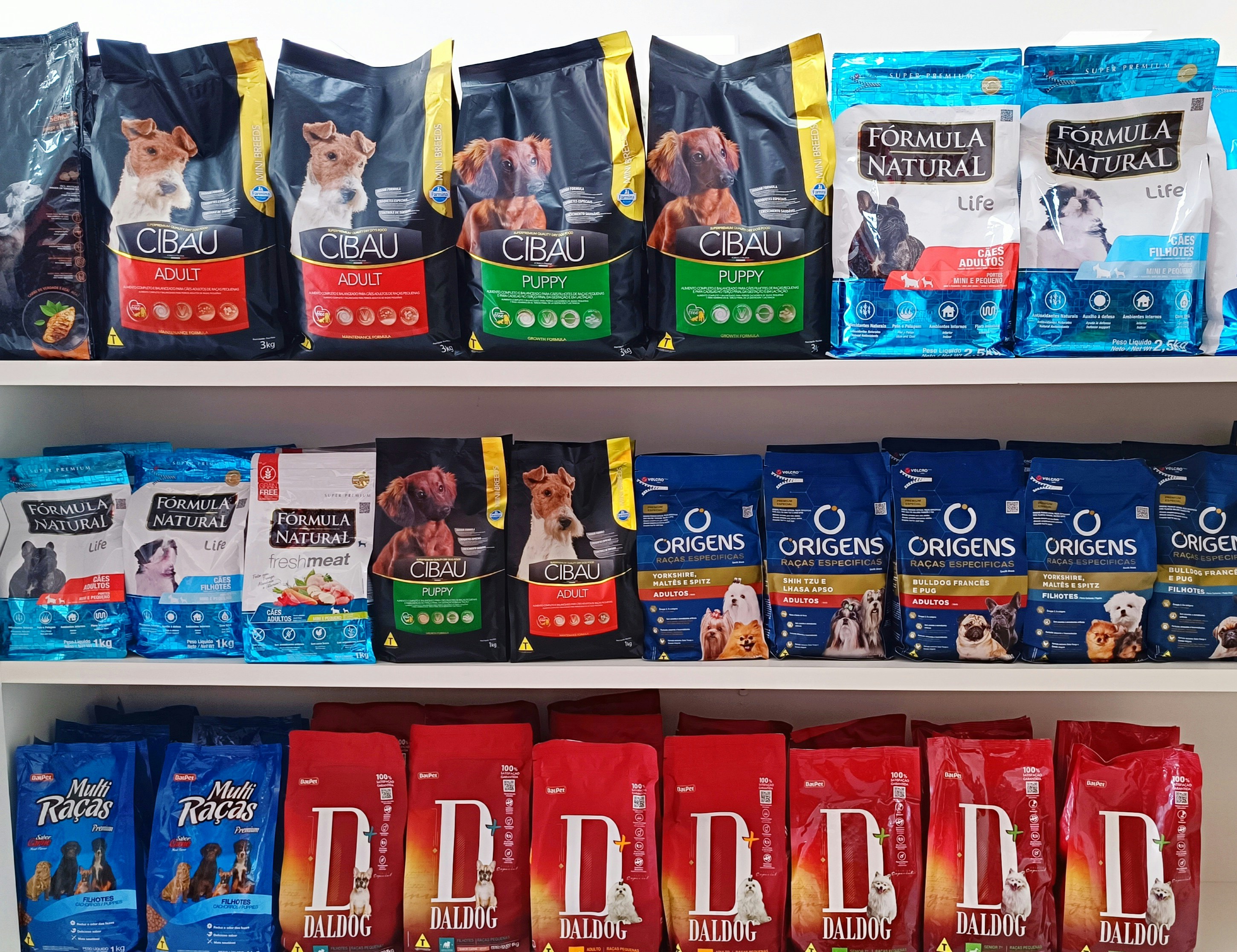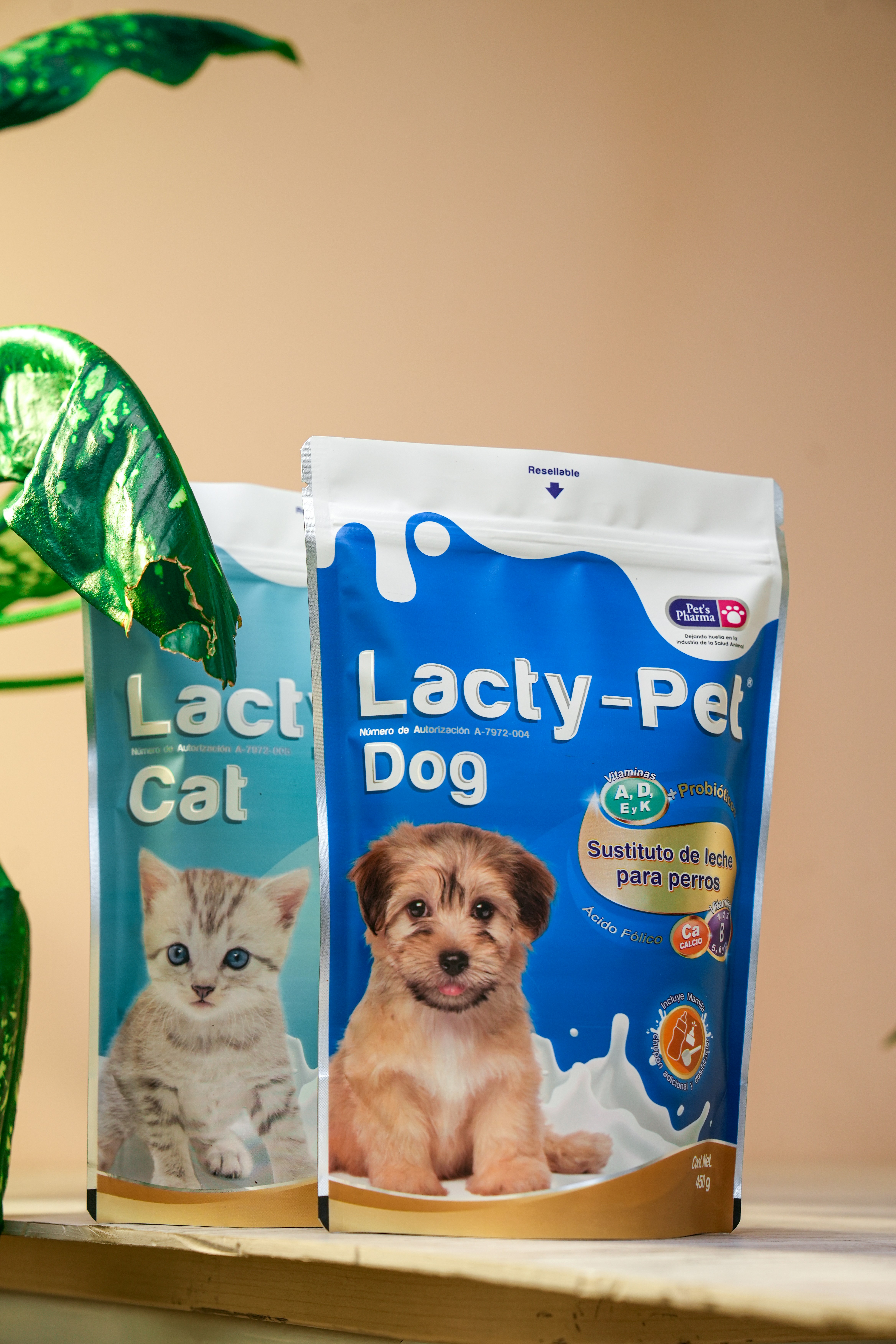Pet Health Care Guide: Choosing the Best Puppy Food for Healthy Growth

Introduction to Puppy Nutrition
Puppy nutrition plays a critical role in ensuring healthy puppy growth and development. Puppies, in their formative stages, have specific dietary needs that significantly differ from those of adult dogs. Proper nutrition during these pivotal months is essential not only for physical health but also for cognitive development and overall well-being. Selecting the right food is vital, as it can set the foundation for long-term puppy health care.
During the first year of a puppy’s life, rapid growth occurs, demanding a balanced supply of nutrients such as proteins, fats, carbohydrates, vitamins, and minerals. Puppies require higher levels of protein to support their developing muscles, as well as sufficient fats for energy and the absorption of fat-soluble vitamins. Therefore, a diet focused on high-quality ingredients will provide the necessary nutrients for optimal growth. In contrast, adult dog food may not meet these specific nutritional requirements, which can hinder a puppy’s growth and development.
In addition to physical growth, proper puppy nutrition positively influences behavior and cognitive functions. A well-nourished puppy tends to exhibit better learning abilities and social behaviors, making it easier for owners to implement training and socialization protocols. Thus, understanding the unique dietary needs of puppies, as outlined in a comprehensive puppy nutrition guide, is imperative for any pet owner.
The selection of food for puppy development is a fundamental aspect of pet ownership. Owners must consider both the nutritional value and the specific needs of their puppy’s breed and size. As puppies transition from one life stage to another, their diet should be adjusted accordingly, ensuring that they receive the best puppy food available for their growth stage. With meticulous attention to dietary needs and proper nutrition, pet owners can greatly enhance their puppy’s health and happiness throughout their lives.
Understanding Puppy Food Labels
When it comes to selecting the best puppy food, understanding food labels is crucial for ensuring healthy puppy growth. Puppy food labels provide vital information about the composition and nutritional value of the product, which can significantly impact your dog’s development. The Association of American Feed Control Officials (AAFCO) sets regulations that define what constitutes adequate nutrition for puppies, making it essential for pet owners to be well-informed.
One of the key aspects to look for on puppy food labels is the protein source. High-quality protein is fundamental to puppy nutrition, as it supports muscle development and overall health. Check for specific names of meat sources, such as chicken, beef, or lamb, listed near the top of the ingredient list, as this indicates a higher quality of protein for puppy development.

Fat content is another critical element to assess. Healthy fats are vital for providing energy and supporting skin and coat health. Look for sources of omega fatty acids, such as fish oil or chicken fat, which are beneficial for maintaining the overall well-being of your puppy. An appropriate balance of fats contributes to optimal puppy nutrition, ensuring that your dog retains a healthy and shiny coat.
In addition to protein and fat, focus on the vitamins and minerals included in the food. Essential nutrients such as calcium and phosphorus promote healthy bone growth, while vitamins A, C, and E support immune function. Check that the puppy food meets the AAFCO standards for growth and reproduction to guarantee that it provides all necessary nutrients for puppy health care.
By thoroughly understanding and interpreting puppy food labels, dog owners can make informed choices about the best puppy food for their beloved pets, fostering healthy growth and development.
Types of Puppy Food: Dry, Wet, and Raw
When choosing the best puppy food to ensure healthy puppy growth, it is essential to understand the different types of food available. The primary categories include dry kibble, canned wet food, and raw food diets, each offering unique benefits and drawbacks that can impact puppy nutrition.
Dry kibble is perhaps the most convenient option for busy pet owners. It is shelf-stable, easy to measure, and facilitates dental health by reducing tartar buildup during chewing. Additionally, high-quality dry foods often contain balanced nutrition, catering specifically to the needs of growing puppies. Economically, kibble can also be more cost-effective compared to other types. However, the downside may include lower palatability for some puppies, particularly if they prefer moist textures.
Canned wet food presents another viable choice, especially for those puppies who may be picky eaters or require more hydration in their diet. The moisture content can aid in digestion and overall hydration levels, which is particularly beneficial during hot weather. However, canned food tends to be pricier and has a shorter shelf life once opened. Furthermore, it may not provide the same dental health benefits as dry kibble.
Raw food diets, popularized by the belief in mimicking ancestral canine diets, typically consist of uncooked meat, bones, and vegetables. Proponents argue that this type of food ensures optimal puppy health care and development, providing rich nutrients absent in processed foods. Despite these advantages, raw diets can pose risks, including bacterial contamination and nutritional imbalances if not properly managed. It may also demand more time and planning from pet owners to ensure a balanced diet is achieved.
In conclusion, the choice between dry, wet, and raw puppy food largely depends on individual circumstances, including a puppy’s specific needs, owner preferences, and lifestyle. Understanding these options equips pet owners with the knowledge necessary for making informed decisions in their puppy nutrition guide, ultimately aiding the health and growth of their beloved pets.
Key Nutritional Requirements for Puppies
Ensuring the optimal health of your puppy starts with a well-balanced diet tailored to their specific growth needs. Puppies require a higher level of nutrition compared to adult dogs, and understanding the key components of their diet is crucial in selecting the best puppy food. The primary nutrients necessary for healthy puppy growth include proteins, fats, carbohydrates, vitamins, and minerals.
Protein is fundamental to a puppy’s development, serving as the building block for muscles, tissues, and overall cellular function. High-quality protein sources, such as chicken, beef, and fish, should be the first ingredients in dog food. It is important to confirm that the food provides adequate protein levels, ideally ranging from 22% to 32% for puppies, as this will directly support their growth and energy needs.
Fats play a vital role in maintaining energy levels and contributing to the overall health of puppies. They provide essential fatty acids that are crucial for brain development and a shiny, healthy coat. Look for sources of healthy fats, like fish oil or flaxseed oil, as these not only aid in skin and coat health, but also in absorption of vitamins.
Carbohydrates are also necessary as they provide energy for active puppies. However, it’s essential to source carbohydrates from whole grains or vegetables to ensure they are digestible. Avoid fillers such as corn or soy that are often found in lesser-quality foods. Moreover, essential vitamins and minerals are required in balanced amounts and will support various bodily functions, including bone growth and immune system health.
As you navigate through different brands and formulations for puppy nutrition, consider these essential nutrients as benchmarks for selecting an appropriate food for puppy development. By prioritizing a balanced intake of proteins, fats, carbohydrates, vitamins, and minerals, you will lay the groundwork for optimal puppy health care and longevity.
Choosing the Right Brand: What to Look For
When it comes to selecting the best puppy food, the choice of brand is crucial for ensuring healthy puppy growth. To facilitate this process, pet owners should consider several key factors that reflect the quality and reliability of puppy food brands.
First and foremost, it is essential to evaluate the brand’s history and reputation in the industry. A well-established brand with a long-standing commitment to pet nutrition often indicates a level of trustworthiness. Researching how long a brand has been in the market, their mission, and their dedication to puppy health care can provide valuable insights into their reliability.

Next, customers should assess the quality control practices implemented by the brand. Reputable companies often adhere to stringent safety and quality standards throughout the production process, which is critical for puppy nutrition. Investigating whether a brand conducts regular testing for harmful substances or employs third-party facilities for oversight can further establish confidence in the product.
Ingredient sourcing is another vital aspect to consider. Premium brands typically use high-quality, natural ingredients without artificial additives or fillers. Understanding the source of proteins, grains, and other components will ensure that the chosen food supports optimal food for puppy development. Brands that provide transparency in their ingredient lists tend to be more trustworthy.
Furthermore, examining customer reviews can provide firsthand accounts of the product’s effectiveness. Positive testimonials from fellow dog owners regarding their puppies’ health and energy levels upon using a specific brand can bolster confidence in its selection. However, it is important to read reviews critically, taking note of both positive and negative experiences.
Lastly, look out for recognized certifications and standards from veterinary organizations or pet food authorities. Such endorsements can act as a benchmark for quality and help ensure you are choosing the right puppy food that aligns with your pet’s nutritional needs.
Transitioning Your Puppy to New Food
Transitioning your puppy to a new food is a critical step in ensuring their healthy growth and development. A sudden change in diet can lead to gastrointestinal disturbances, including diarrhea and vomiting. Therefore, it is essential to introduce new food gradually, allowing your puppy’s digestive system to adjust adequately.
To commence the transition, begin by mixing a small amount of the new food with your puppy’s current food. A common recommendation is to start with about 25% of the new food combined with 75% of the existing food. Maintain this ratio for about three to four days while observing your puppy for any digestive issues or allergies. If no adverse reactions occur, you can gradually increase the proportion of the new food to 50% over the next few days.
During this transition period, continue to monitor your puppy’s health closely. Look for signs of discomfort or allergies such as itching, vomiting, or abnormal stool consistency. Any such symptoms may indicate that the new formula does not suit your puppy’s dietary needs. In this case, further adjustments may be required, or you might consider consulting with a veterinarian to ensure optimal puppy nutrition.
The entire transition process should ideally take about seven to ten days. This timeline can be adjusted based on how well your puppy tolerates the new diet. Remember, the goal is to make this a stress-free experience for your puppy while promoting healthy puppy growth. Following this gradual approach will not only ease the change for your pet but also support their overall health and development.
Common Mistakes to Avoid When Choosing Puppy Food
When selecting the best puppy food, dog owners often fall into several common pitfalls that can adversely affect their puppy’s health and growth. One significant mistake is choosing food solely based on advertising claims. Many brands market their products with bold promises of superior nutrition and miraculous health benefits, which can be misleading. It is essential to critically evaluate these claims and rely on scientific evidence and nutritional guidelines rather than marketing slogans.
Another frequent oversight is neglecting to consider the specific needs of different breeds. Puppies, like humans, have unique dietary requirements based on their breed, size, and energy levels. Large breed puppies, for instance, may require food formulated to support slow growth and prevent skeletal issues, whereas smaller breeds often need nutrient-dense food tailored for their rapid development. A one-size-fits-all approach can lead to imbalanced puppy nutrition, resulting in health complications later in life.
Additionally, portion control is a crucial aspect often ignored by puppy owners. Overfeeding can lead to obesity, which poses significant risks to a puppy’s overall health and development. It’s essential to follow the feeding guidelines provided on the food packaging and adjust them based on the puppy’s activity level and growth stage. Regular consultation with a veterinarian can also help ensure that your puppy is receiving the correct amount of food for optimal development.
Being aware of these common mistakes can lead to more informed decisions regarding puppy health care and nutrition. By prioritizing a balanced diet tailored to your puppy’s specific needs, you can support healthy puppy growth and make strides toward a happy and thriving life for your furry friend.
Consulting Your Veterinarian: The Best Resource
When it comes to ensuring the best nutrition for your puppy, consulting your veterinarian is a paramount step. A veterinarian is not merely a medical professional but a partner in navigating the complex world of puppy health care. Each puppy is unique, with differing needs based on breed, age, activity level, and health status. By personalizing recommendations, a veterinarian can provide invaluable guidance on the best puppy food that promotes healthy puppy growth.
Veterinarians are equipped with a wealth of knowledge and experience regarding puppy nutrition and its impact on development. For instance, they can suggest specific dietary plans that align with your puppy’s lifestyle, whether active, sedentary, or prone to certain health issues. Discussing your puppy’s developmental phase—such as whether it is a young, active puppy or in the transitional stage of growth—allows the veterinarian to recommend the most appropriate food for puppy development. These insights are essential for establishing a foundational diet that supports optimal growth.
Furthermore, regular consultations with your veterinarian can help to track your puppy’s growth and adjust their diet as necessary. Puppies undergo rapid changes, and their nutritional needs might evolve, requiring periodic evaluations and modifications in their diet. Creating a balanced meal plan with the assistance of a veterinarian also ensures that your puppy receives the right combination of nutrients. This proactive approach to puppy nutrition plays a crucial role in fostering long-term health and wellness.
In summary, your veterinarian should be regarded as a key resource for navigating puppy nutrition. By leveraging their expertise, you can tailor your puppy’s diet to promote healthy growth and overall wellness, ensuring a bright future for your furry companion.
Conclusion: Nurturing Your Puppy for a Healthy Future
In fostering a healthy and thriving environment for your puppy, selecting the best puppy food becomes an essential aspect of their overall wellness. Responsible pet ownership involves understanding the specific nutritional needs of your growing companion. Proper puppy nutrition plays a pivotal role not only in their immediate health but also in laying the groundwork for their long-term well-being.
The journey towards optimal puppy health care begins with making informed decisions about diet. Each puppy has unique requirements based on factors such as breed, age, and activity level; thus, it is critical to consult with veterinary professionals when considering food options. A well-crafted puppy nutrition guide can help navigate the plethora of choices available, ensuring that the food for puppy development aligns with their growth phase.

Moreover, it is important to include high-quality ingredients that support muscle development, bone health, and cognitive function. The best puppy food is often rich in essential nutrients, which are necessary for their cognitive and physical development. This knowledge aids owners in serving balanced meals that will contribute to healthy puppy growth.
Ultimately, nurturing your puppy is not solely about feeding; it extends to understanding their holistic health care needs, including regular veterinary check-ups and vaccinations. By prioritizing their nutrition and overall care, you actively participate in shaping a healthier future for your beloved pet. As a proactive pet owner, take the steps necessary to choose the right food that will fuel your puppy’s journey into adulthood. Investing in quality nutrition now will yield benefits that last a lifetime.




